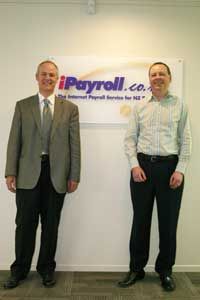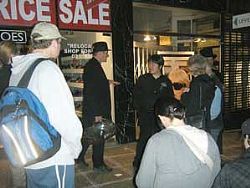FILLING IN THE GAPS
Having a great idea, or being good at producing a particular product or service, and understanding how to run a business successfully do not necessarily go hand in hand.
Outsmarting the competition
Current ICE Bridge programmes for owner managers are ‘full to capacity’, says channel manager Maria Taylor. "In the past, time was always an issue for [owner managers], but now they realise they need to be smarter than the competition and see education as a way to do this."
Short courses may be the answer, but finding the right course can be a challenge.
(Google ‘short business courses nz’ and around 900,000 results flood in.)
Save time by asking the people in your business network, who have up-skilled in the areas that interest you, where they went for training.
The ICEHOUSE Growth Seminar is a day and a half workshop designed to get business owners thinking strategically about their business – something they normally don’t spend a lot of time on, says Taylor.
"We ask them what their business looks like five years from now and then we ask them how they’re going to get there. Our courses aren’t about giving them the answers. They bring an issue and get to tease it out and find the answer that works for their business."
Generally attendees are people who’ve been so immersed in their business they’ve not been able to see the wood for the trees, says Taylor. "These workshops put the clarity back. The owner gets his or her motivation back." They get excited again and the passion is renewed, she says. "We often hear after a workshop, ‘complacency now zero, ownership now high!’ "
Vanessa MacLeod did the ICE Bridge owner/manager programme last year. Her interest in the programme was sparked when she and her brother Thor, co-owners, with their father John Christensen, of Whakatane Glass, attended an ICEHOUSE seminar last April. The business was started by her grandparents in 1959 but to take it to the next level they needed an injection of fresh energy, knowledge, and a change of focus, she says.
"I thought the ICE Bridge concept was absolutely fabulous and a chance in a million! "The biggest outcome is that I am energised to stay in the business and work ON it instead of IN it," says Vanessa. "I now constantly reflect on all aspects of our business, our team, our clients, our processes and structures, looking for small improvements we can implement to make a difference."
Vanessa also attributes a more balanced lifestyle to the ICE Bridge programme.
"Instead of 90 percent business I am now prioritising family time, my time, health and regular fitness into my schedule. I’m learning to delegate and say ‘no’, and block my diary for business projects instead of pushing them over into my time."
Building capability
WHK Business Growth is contracted by NZ Trade and Enterprise (NZTE) to deliver the Enterprise Training programme in Auckland. This is fully funded by NZTE and designed to build the capability of SME owners and managers, says marketing co-ordinator Damian Bennett.
"Time is one of the scarcer resources available to them and the learning format has to cater to this," says Bennett. "Short courses provide this opportunity." They also appeal, he says, because they are practically focussed with implementation of strategies taking priority over theoretical aspects.
Bennett says, generally speaking, interest tends to be concentrated in the areas of financial management and marketing. "Small business owners quickly learn that it’s the financials which are the first indicators of any problems." And, he says, given the current economic climate, managing cashflow continues to be critical for small business owners.
"Managing staff and capacity, either shortfall or excess, is another ongoing issue for small businesses."
WHK also designs and delivers ‘high-impact’ training programmes to meet specific needs. Their work with the Book Publishers Association of New Zealand (BPANZ) is an example.
BPANZ manages a collective New Zealand stand at the annual Frankfurt Book Fair. "Publishers purchase space on the stand to display their range and meet with potential partners," says associate director Anna de Lautour. It’s a five day fair that, in 2008, attracted more than 7400 exhibitors from 108 countries, and almost 300,000 visitors – a daunting prospect for first time exhibitors, she says.
But export seminars organised by WHK Business Growth, in conjunction with long-time Frankfurt exhibitor Bob Ross, give exhibitors the opportunity to be way ahead when they reach Frankfurt, says de Lautour. "They have the confidence to put the knowledge gained into practice which gives them a huge head start."
Claire Murdoch, publisher at Te Papa Press was one of last year’s rookie exhibitors.
"After ten years in business and some success at a national level we were ready to take our business to Frankfurt in person." She says the export seminars made an enormous difference to all aspects of the trip, from researching and planning, to how to negotiate and follow up.
"The presentations and workshops were relevant every step of the way and the follow-up advice from Bob Ross really professionalised our discussions once we were back in New Zealand."
Murdoch says, as a small company with a responsibility to spend prudently, the support from NZTE was what ultimately made attending possible.
Distance learning
The Open Polytechnic offers distance learning – an option ideally suited to people wanting to study in their own time or fit learning around business commitments. (The Polytechnic’s contribution to small business education has been recognised with wins at the Vero Excellence in Business Support Awards)
The Polytechnic’s Centre for Entrepreneurship and Enterprise Development (CEED) offers both certificate level qualifications in small business and entrepreneurship (export), and self-select modules, under its Essential Elements of Small Business programme.
"This allows people to ‘pick and mix’ the specific skills they want to acquire or sharpen," says the Open Polytechnic’s small business expert Chris Matthews. It’s a ‘skill gap’ approach, he says, where only those areas identified as weaknesses are studied.
The Polytechnic also offers an online diagnostic tool that enables people to assess their current small business knowledge and skills and identify where they have gaps or areas needing improvement.
Modules are available online or as printed resources, and are supported by freephone contact with tutors, says Matthews. The most popular are those dealing with financial issues such as taxation and cashflow, and marketing. "There’s also a growing interest in soft skills such as communication with customers and dealing with conflict."
Vivienne Lester is one half of Wellington based E-Writers NZ Ltd, specialists in technical writing. They have the writing expertise, but Vivienne says they needed extra business savvy to enable them to work smarter and grow the business over the next two years.
She has worked her way through the 40 modules of the Open Polytechnic’s business course and, as their computers are used constantly for the business, chose to do it ‘on paper’. It’s worked for her she says, but distance learning doesn’t suit everyone.
"It means more discipline and commitment is required. This may not be the best choice for people who need other students to bump ideas off or immediate access to a tutor."
More options
The latter half of last year saw changes on the short course front when David Forman and Conferenz integrated. But MD Steve Scott, says its business as usual for both brands.
"Our top priority is to protect the David Forman experience and introduce it to even more people."
Conferenz offers an annual schedule of more than 150 short courses, says Scott, and many of those, plus the sales and management training offered by David Forman, are well suited to the needs of small business owners who find themselves needing to up-skill in areas in which they may have little or no training.
The Knowledge Gym takes a new angle on business training. Another winner in the Vero Excellence in Business Support Awards, its programme is set to specifically help the needs of SMEs, say co-owners Mike Doughty and Jody Bloomfield.
Membership of The Knowledge Gym is available at different levels and gives access to Knowledge Workouts – intensive half-day seminars, full day Business Workouts and Connections Workouts, plus after-five networking sessions. But gone are the days of the jolly day out, sitting idly in a seminar and being spoken at, they say.
"Gaining inspiration and turning this into action is everything at a Knowledge Gym seminar."
The concept obviously appeals. Business owners, keen to put some muscle into their business, are lining up in their hundreds every month for The Knowledge Gym’s half day seminars.
"A consistent programme of work-outs enables small business owners to tone the shape of their business and become a much leaner and more agile beast," say Doughty and Bloomfield.
Brenda Ford, who operates Zoom Technologies, a mobile computer and network repair provider based in Franklin, south of Auckland, is a Knowledge Gym junkie who’s just signed up for her second year of work-outs. "I wanted to make sure I was doing the right things in the right order to grow my business."
The Knowledge Gym was recommended to her by a client who also happens to be her business adviser – and who also attends The Knowledge Gym.
"Even though there are hundreds at the seminars you’re seated at tables of eight, most of whom are small business owners, so you get to hear their perspective on what the speaker is delivering."
The information is always relevant, says Ford, but it helps to be a good note-taker.
"You also have to be disciplined and re-read your notes a couple of days later to see how it fits with your business."
Small business operators have discovered the value of business education – and it seems once they’ve had a taste they want more. Brenda Ford also attends the free short courses given by Enterprise Franklin Development Trust. "They cover the same areas but sometimes you need to be told the same thing several times in several ways for the message to get through!"
Patricia Moore is an Auckland-based freelance writer. Email [email protected]
Relevant websites:
www.shortcourses.auckland.ac.nz
www.theicehouse.co.nz
www.openpolytechnic.ac.nz
www.conferenz.co.nz
www.theknowledgegym.com
Business owners are finally accepting that more knowledge is power and are signing up to short courses in larger than ever numbers. Patricia Moore looks at some of the options available to them.
Indeed, many small business operators actually need a hand. And, while tough times may see the tough get going, it’s the savvy operators who acknowledge they have shortcomings in particular areas and are prepared to do something about filling in the gaps who will flourish.
Lack of business skills is often cited as the reason small enterprises fail to reach their optimum potential, but it appears there’s a growing acceptance that knowledge is power; time spent up-skilling is time, and money, well spent.
"We are seeing more and more small business owners attending our courses," says Darren Levy, director Short Courses at the University of Auckland Business School. And, he says, the feedback is very positive.
"The tangible benefits of executive or professional development include providing individual learners with the chance to reflect, increase specific skills, network and learn from others, as well as receive new knowledge."
Levy says they currently deliver more than 140 different topics with courses ranging from budgeting and forecasting to managing people, strategic planning and sales skills.
Being away from the business seems to be the biggest hurdle for the owners and managers of small enterprises, says Levy; cost is also an issue. "But many are recognising that now is a good time to invest in developing themselves, to ensure they come out of these challenging conditions in good shape."




